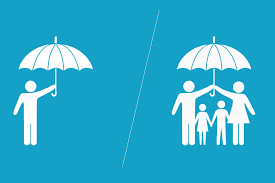Group Health Insurance vs Individual Health Insurance: Which is Better?
Group Health Insurance and Individual Health Insurance differ in coverage scope and enrollment criteria, impacting benefits and costs.
Inforia - Health insurance is a type of insurance that helps individuals pay for medical and surgical expenses. It can cover a wide range of healthcare services, including preventive care, diagnostic tests, prescription drugs, and emergency treatment.
Choosing the right health insurance plan can be a daunting task, especially when there are so many options available. This article aims to compare and contrast group health insurance and individual health insurance to help readers make an informed decision.
Group health insurance is a type of health insurance that is provided by an employer or an organization to its employees or members. While, individual health insurance is purchased by an individual directly from an insurance company or through a broker.
Group health insurance is a type of health insurance that is provided to a group of individuals by an employer or an organization. It is designed to provide healthcare coverage to a large number of people at a lower cost than individual health insurance.
Group health insurance is a type of health insurance that is provided by an employer or an organization to its employees or members. While, individual health insurance is purchased by an individual directly from an insurance company or through a broker.
Group Health Insurance
Group health insurance is a type of health insurance that is provided to a group of individuals by an employer or an organization. It is designed to provide healthcare coverage to a large number of people at a lower cost than individual health insurance.
Who is Eligible for Group Health Insurance?
Group health insurance is typically offered to full-time employees of a company or members of an organization. The employer or organization negotiates with an insurance company to provide healthcare coverage to its employees or members.
And eligibility for group health insurance varies depending on the organization or employer providing the coverage. In general, group health insurance is typically offered to full-time employees of a company or members of an organization. This can include:
- Employees of a company: Group health insurance is often offered to full-time employees of a company. The eligibility requirements for coverage may vary depending on the company's policies.
- Members of an organization: Group health insurance can also be provided to members of an organization, such as a trade association or union. Members may be required to meet certain eligibility criteria, such as being active members in good standing.
- Dependents: Group health insurance may also cover dependents, such as spouses and children. The eligibility requirements for dependents may vary depending on the plan and the organization providing the coverage.
It is important to note that eligibility requirements can vary widely between different group health insurance plans. It is recommended to carefully review the eligibility requirements for any plan you are considering to ensure that you and your dependents are eligible for coverage.
Advantages of Group Health Insurance
- Lower Premiums: Group health insurance is generally less expensive than individual health insurance because the cost is shared among a group of people. This can result in lower premiums for employees or members.
- Comprehensive Coverage: Group health insurance typically offers more comprehensive coverage than individual health insurance. This can include coverage for preventive care, diagnostic tests, prescription drugs, and emergency treatment.
- Guaranteed Issue: Group health insurance is typically guaranteed issue, which means that individuals cannot be denied coverage based on their health status or pre-existing conditions.
Disadvantages of Group Health Insurance
- Limited Choices: Group health insurance plans typically offer limited choices when it comes to healthcare providers and facilities. This can be a disadvantage for individuals who have established relationships with specific healthcare providers or facilities that are not included in the plan's network.
- Lack of Flexibility: Group health insurance plans are designed to provide coverage for a group of people, which means that there is limited flexibility in terms of plan customization. This can be a disadvantage for individuals who have unique healthcare needs that are not covered by the plan.
- Loss of Coverage: Individuals who leave their job or organization may lose their group health insurance coverage. This can be a disadvantage for individuals who rely on their employer or organization for healthcare coverage.
Individual Health Insurance
Who is Eligible for Individual Health Insurance?
Individual health insurance is available to individuals who are not eligible for group health insurance through an employer or organization. This includes self-employed individuals, those who work part-time, those who are unemployed, and those who do not qualify for group health insurance for other reasons. In some cases, individuals may also choose to purchase individual health insurance even if they are eligible for group health insurance, in order to have more control over their coverage and healthcare choices. However, it's important to note that individual health insurance can be more expensive than group health insurance and may not offer the same level of coverage.
Advantages of Individual Health Insurance
- Greater Flexibility: Individual health insurance plans offer greater flexibility in terms of plan customization. This can be an advantage for individuals who have unique healthcare needs that are not covered by a group health insurance plan.
- More Choices: Individual health insurance plans typically offer more choices when it comes to healthcare providers and facilities. This can be an advantage for individuals who have established relationships with specific healthcare providers or facilities.
- Portability: Individual health insurance plans are portable, which means that individuals can maintain their coverage even if they change jobs or organizations.
Disadvantages of Individual Health Insurance
- Higher Premiums: Individual health insurance plans are typically more expensive than group health insurance plans because the cost is not shared among a group of people.
- Limited Coverage: Individual health insurance plans may not offer as comprehensive coverage as group health insurance plans. This can be a disadvantage for individuals who require a lot of medical care.
- Underwriting: Individual health insurance plans may require underwriting, which means that individuals can be denied coverage based on their health status or pre-existing conditions.
Which is Better: Group Health Insurance or Individual Health Insurance?
The answer to this question depends on the individual's specific needs and circumstances. Group health insurance can be a good option for individuals who have access to a comprehensive plan through their employer or organization. However, individual health insurance may be a better option for individuals who require more flexibility and choice in their healthcare coverage.
Ultimately, the best way to determine which type of health insurance is better for you is to carefully consider your healthcare needs and budget, and compare the benefits and costs of different plans. It is also important to consult with a licensed insurance agent or broker who can provide expert guidance and advice.
Individual health insurance can be a good option for individuals who are not eligible for group health insurance. It typically offers more choices and can be customized to meet an individual's specific healthcare needs and budget. However, it can also be more expensive than group health insurance and may require individuals to go through underwriting.








